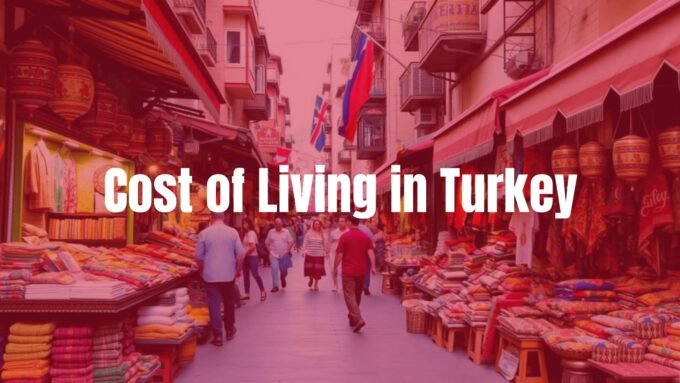The real estate market in Turkey is lively and draws attention from both Turkish and foreign investors. However, it comes with its own set of things you need to keep in mind. What makes this market so popular, and what should buyers know before getting started? In this article, we break down the key points, current trends, and opportunities in Turkey’s property market, offering an easy-to-understand guide for anyone interested in buying or investing here.
Understanding the Turkish Real Estate Market
Turkey’s property market plays a big part in its economy and offers many options for investors. The country’s unique location, young population, and ongoing building projects make it an appealing choice for people interested in residential or commercial real estate. With its mix of older charm and modern buildings, Turkey is a good place to look for homes, offices, or even land for new developments.

Main Reasons Behind Growth in Turkish Real Estate
- Turkey is located between Europe, Asia, and the Middle East, making it a meeting point for businesses and people.
- The population is large (about 85 million), young, and mostly lives in cities, which means there’s strong need for housing and offices.
- The government supports building projects and foreign investment through programs like the citizenship-by-investment scheme and tax incentives.
- The construction sector is active, with ongoing renewal efforts and large-scale projects like the Istanbul Finance Center.
- The changing value of the Turkish lira sometimes makes it cheaper for foreign buyers to buy property in Turkey, increasing interest from outside the country.
Programs allowing foreigners to easily get Turkish citizenship by investing in property have also played a part in bringing in investments, although recent rule changes have made it harder than before.
Top Cities and Regions for Investment
- Istanbul: By far the most popular city for property investment, with neighborhoods like Nisantasi offering expensive homes and other areas that mix history and new developments. There’s also a large and growing supply of office space here.
- Ankara: The Turkish capital has a steady rise in housing prices, making it a dependable market.
- Izmir: The third-biggest city, offering good value for buyers.
- Antalya: Especially popular with foreigners and tourists; strong sales figures.
- Mersin: Has seen a recent jump in sales and foreign interest.
- Marmara Region: Important for logistics and industry, with plenty of commercial property available.

Types of Properties You Can Buy
- Residential: Choices include apartments, family villas, duplexes, and luxurious penthouses. Many developments come with extras like pools and security.
- Commercial: These include office buildings, retail spaces (like those found in over 460 shopping centers), industrial properties, and warehouses-especially near Istanbul and the Marmara Region.
- Land: Buyers can also find land for development, although the tax rules are different.
| Type | Example | Common Locations |
|---|---|---|
| Apartment | Modern, with facilities | Istanbul, Ankara, Izmir |
| Villa | Large, often with gardens | Antalya, coastal areas |
| Office | Grade A spaces | Istanbul, Marmara Region |
| Retail/Commercial | Shops, Mall units | Major cities |
| Land | Building plots | Various, depends on zoning |
Turkish Real Estate Market by the Numbers
If you want to know what’s really happening in the Turkish property market, it helps to look at the data on prices, rents, and recent trends.
Housing Price Trends
- Official figures from the Turkish Central Bank state that residential property prices went up 31.95% (year-on-year) by January 2025. Previous years also saw big increases: 29.43% in 2024, 83.14% in 2023, and a huge 151.88% in 2022.
- New homes had a 33.9% price increase in January 2025; existing homes rose by 31.7%.
However, Turkey’s high inflation wipes out much of these gains. Adjusted for inflation, real house prices actually dropped by 7.16% in early 2025. The same is true for big cities-so while it seems like properties are appreciating, in real terms their value is slipping, which is especially important for those buying with foreign currencies.

Rental Market and Yields
- Rental returns are a bright spot. The national average gross rental yield was 7.41% in early 2025, an improvement over the year before (7.14%).
- City by city:
- Istanbul: 7.3% average (can range from 4%-11.7%).
- Ankara: 8.29% average (range: 5.4%-9.5%).
- Adana: 8.95% average (6.55%-12.49%).
- Konya: 7.77% average (6.23%-10.54%).
- Antalya: 5.73% average.
This shows that while property values are not always rising in real terms, strong rental demand can help investors earn regular income.
Differences Between New and Existing Properties
- Prices for newly built homes jumped 33.9% in early 2025 (but actually dropped by 5.8% if calculating inflation effects).
- Existing home prices climbed by 31.7% (real value fell by 7.4%).
Both new and old homes show consistent nominal price rises, but due to high inflation these don’t always translate into gains for the investor. However, overall demand has grown sharply, with home sales up 20.6% in 2024 and even higher in early 2025.
Building Activity and Supply
- Despite strong demand, the pace of building has slowed. In 2024, construction permits for homes fell by 11.9% to 758,189 units. The number of buildings getting permits and total floor area also dropped.
- One-dwelling builds fell by 18.6%; larger apartment builds were down 11.2%.
If building activity keeps slowing down while demand stays high, there may be future shortages and rising prices for new homes.
Who Is Buying Real Estate in Turkey?
The demand for homes and offices now comes from both Turkish citizens and, to a lesser degree, foreigners. Each group has its own reasons for buying.
Local Buyers
- After a few slow years, sales to Turkish citizens have grown quickly. Home sales increased by 20.6% in 2024, with 1.48 million homes sold nationwide.
- Istanbul led with over 16% of all sales. Ankara, Izmir, Antalya, and Mersin also posted major growth.
Foreign Buyers and Recent Trends
- Foreign demand has dropped lately. Changes in residency and citizenship rules increased minimum investment amounts, leading to a 32.1% drop in foreign purchases in 2024 (down to 23,781 units).
- By 2024, foreigners made up just 1.6% of homebuyers, down from 4.6% two years before.
- Most foreign buyers come from Russia (over 20%), Iran (9%), then Ukraine, Germany, Iraq, and Kazakhstan. Istanbul and Antalya remain the top spots for foreign-owned property.
What Attracts International Investors?
- The most popular motivator has been the possibility of gaining Turkish citizenship by buying property (minimum required: $400,000 as of 2023).
- Turkey is situated at a key point between Europe and Asia, has a young population, and a developing economy. These factors, plus the potential for earning rental income, attract outside investors.
- Sharp declines in the Lira mean foreign buyers can sometimes find bargains.
- Turkey allows buyers to rent or sell the properties they purchase, adding flexibility.
Key Legal Rules When Buying Property in Turkey
Understanding property laws is critical-especially if you’re not a Turkish citizen. Here are the basics on foreign ownership, paperwork, and what professionals like real estate agents do in the process.
Rules for Foreign Buyers
- Since 2012, most foreigners can buy property in Turkey, except citizens from Armenia, Syria, North Korea, Nigeria, Cuba, and Yemen.
- You can’t own more than 30 hectares (about 74 acres) in total, and not more than 10% of land in any district.
- Some zones, like military or security areas, are off-limits for foreign buyers.
Title Deeds and Registration
- The title deed (known as “TAPU”) proves you own the property. You’ll need an appraisal report from a certified company before you buy.
- The deal is recorded at a Land Registry office, and you’ll pay a registration fee (4% of the purchase price). Legally, buyer and seller each pay half, but sometimes the buyer pays the full amount.
- Foreigners may need an official translator present. The entire process, from agreement to transfer, usually takes 1-2 weeks.

Role of Real Estate Agents and Fees
- Agents typically charge up to 4% of the property’s value, legally split between buyer and seller-but sometimes the full fee falls to the buyer.
- Good agents can guide you through legal and market differences you might not know. Many foreign investors also hire property managers for ongoing assistance.
Costs, Taxes, and Financing
Buying a property in Turkey isn’t only about the sales price-there are extra fees, taxes, and possible loan options to consider.
Purchase Costs and VAT
- The main upfront fees are the 4% agent commission and the 4% TAPU (title deed) registration fee. Sometimes, the buyer pays both (total of 8%). On a $200,000 home, this means $16,000 in fees.
- Value Added Tax (VAT) rules differ. Sometimes VAT is not charged (e.g., buying directly from a developer), but it applies in some cases, with rates ranging from 1% to 20% based on property size and license date.
- Other small fees include a public service charge (~$60 in Istanbul), a foreigner registration fee (~$110), and an appraisal fee ($150-$325).
Ongoing Taxes and Expenses
- Yearly property tax: 0.2% of the property’s assessed value in big cities, 0.1% in smaller towns.
- Wealth tax for properties valued over about $143,800 (rates from 0.3% to 1%).
- Insurance for earthquakes is mandatory and costs around $30 per year.
- Environment tax, maintenance, and utility bills (usually paid by tenants, but some costs may remain for owners of empty properties).
Mortgages and Loans for Foreign Buyers
- While the amount of money borrowed for homes keeps rising, mortgages make up a smaller piece of the country’s total economic activity (down from 5.8% of GDP in 2016 to 1.2% in 2024).
- Interest rates are high and change often (over 40% in late 2024).
- Foreigners can get mortgages, but it’s harder, and many prefer to buy in cash or borrow in their home country to avoid currency risk.
Residency and Citizenship by Investing in Real Estate
Buying property in Turkey can offer more than a new home or investment; it also opens the door to residency or citizenship for foreigners.
Getting Residency Through Buying a Home
- As of October 2023, you need to buy a property worth at least $200,000 to apply for a residency permit.
- You need to live in Turkey 183 days per year, and after five years you can apply for citizenship if you meet all the requirements.
How to Gain Turkish Citizenship by Investment
- To get citizenship by buying property, you now need to invest at least $400,000 (rule changed in June 2022).
- You can buy more than one property to reach this total as long as all have title deeds.
- No language test or residency period required; after three years, you can sell the property if you wish.
- This program draws interest from people wanting an extra passport, especially since Turkey has E-2 treaty status with the US.
Opportunities and Risks for Investors
Reasons to Invest in Turkish Real Estate
- Turkey’s location between Europe and Asia makes it a key player for trade and investment. The large, young population means high demand for homes and offices.
- Rental yields are often good, with nationwide averages of 7% or more.
- The weakening Lira provides better value to those with dollars, euros, or other stable currencies.
- Options for residency and citizenship make investing extra appealing.
- Big projects, especially in cities like Istanbul, add long-term growth prospects.
Common Risks and Considerations
- High inflation means that even if property prices rise in Lira, their value in real terms can actually fall.
- Property quality varies and many listings can look better online than in person-it’s wise to visit properties before buying.
- Selling can take time; property markets are less liquid than in some countries.
- Tax and legal rules are sometimes complex-get local advice, especially regarding VAT and capital gains (Unearned Increment Tax).
- Currency risk: further falls in the Lira may reduce your real returns if you plan to sell and take money out of Turkey.
- You’ll need earthquake insurance, and seismic activity is an ongoing risk.

How Economic Ups and Downs Affect the Market
- Turkey’s economy can swing quickly-past government policies created high inflation and a rapidly falling currency.
- Inflation averaged over 62% annually from 2022-2024, meaning that rising property prices don’t always equal true gains.
- The currency fell by more than 45% against the US dollar in two years, making property cheap for outsiders (but risky if the Lira drops more after you buy).
- The government sometimes raises interest rates sharply to control inflation, which can affect confidence in both the property and lending markets.
Managing and Selling Property in Turkey
Day-to-Day Management
- Most investors use property managers to handle renting, collecting payment, and taking care of repairs.
- Required costs include annual earthquake insurance, environment tax (linked to water use), and utility bills (usually paid by tenants, but owners pay if the property’s empty).
Insurance and Maintenance Duties
- Earthquake insurance is legally required for all property owners-transactions can’t go through without it.
- Owners are responsible for upkeep when a property is empty; tenants typically pay for all ongoing costs when renting.
- If a property isn’t in a managed building, owners take care of all maintenance themselves or through a hired manager.
Selling Property: Steps and Taxes
- Real estate agents usually get 4% commission, split between buyer and seller, like during a purchase.
- The main tax is the Unearned Increment Tax (like capital gains tax)-only due if you sell within five years of buying.
- The tax is based on the gain above inflation and is charged at income tax rates (15-40%). Holding for over five years means you pay no capital gains tax.
Frequently Asked Questions About Real Estate in Turkey
Buying property in Turkey often brings up other questions, especially for non-residents. Here’s a look at the most common topics people ask about when thinking of investing or living here.
















Leave a comment